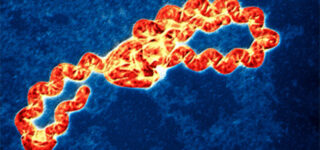Dear Editor,
Baum et al.1 analyzed blood feeding sources (BFSs) of Lutzomyia intermedia in Adrianópolis, located in the north-east region of State of Paraná, by following the description reported by Young & Duncan2. The redescription of Lutzomyia intermedia and the revalidation of Lutzomyia neivai in 19963 were corroborated by other authors4. Almost all researchers working in the field of entomology have accepted this distinction between the species. After a doctoral thesis on this subject was presented by the present author to the Federal University of Paraná in 1997, another one was presented by José Dilermando Andrade Filho from the Oswaldo Cruz Foundation in 2008.
However, why some researchers are adamant in the non-adoption of this differentiation is difficult to understand; whether this is attributable to the absence of bibliographical research or the disregard of taxonomic precision is not clear. The former pretext is unreasonable, because of the presence of careful bibliographical research and good interpretation of data on the studied insects. The disregard for the differentiation of species that can be easily differentiated, such as Nyssomyia intermedia and Nyssomyia neivai, introduces unnecessary imprecision on the identification of the studied species, devaluing the study and jeopardizing its reference in future studies, an important consequence of the impact of publications. Although one Ny. intermedia had previously been found in Adrianópolis, besides the 4,649 Ny. neivaireported previously5, this municipality is situated in the Ribeira river Valley where both species have been found in the neighboring region of the State of São Paulo6–9. Therefore, the sandflies analyzed were probably all Ny. neivai, but this cannot be conclusively confirmed. The importance of differentiation is emphasized by the finding of significant differences between the blood-feeding patterns8 and seasonal and hourly activity9 of Ny. intermedia and Ny. neivai in the Ribeira Valley at São Paulo. The reference to the observations on the flight range of Ny. neivai10 by Baum et al.1 reinforces the disregard on the differentiation of both the species.
The utilization of Nyssomyia as a genus is highly recommendable, unless a disproval is published and generally accepted11; however, the correct specific identification of the studied insects is mandatory to prevent the devaluation of published reports.
The usefulness of correct taxonomy has been defended12, but this defense seems to be a Sisyphus task, due to the continued disregard of some researchers and poor judgment of some journals while accepting manuscripts.

